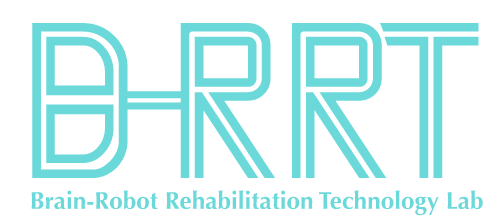Research
Wearable Robotics for Rehabilitation and Enhancement
- Cable-driven exoskeleton with series elastic actuators
- Soft exoskeleton with power modulation units
- Compact electricaladhesive clutch module
- Self-aligning robotic joint
We develop wearable robotic exoskeletons to improve the efficiency, speed and gait symmetry of walking or recover the motor function, especially for people with motor deficits or chronic stroke. Building upon comprehensive analysis of the human-robot interaction, our primary focus is to speed and systematize the design process itself by developing and using versatile hardware prosthesis and exoskeleton emulators and algorithms for human-in-the-loop optimization. We also perform basic scientific research on related topics, for example the efficacy of various assistance modes during walking. And we develop efficient actuators, such as linear series elastic actuators and power modulation actuators, as well as compact electroadhesive clutches.
Physical Human-Robot Interaction
- Adaptive control of rehabilitation robots with uncertainties
- Mix-reality technology based virtual scenes and task emulation
- Robot-assisted bimanual skill learning via shared control
- Novel robot-assisted mirror training with equivalent kinematics
We develop physical human-robot interaction schemes for human motor learning issues, including functional recovery and skill acquisition/ enhancement. Combining with mix-reality technology and impedance/ admittance control, we focus on interaction strategies capable of offering a user-tailored environment based on a user’s physical abilities, emotion changes, personal preferences, and so on. The pursuit of self-adaptation drives us to concentrate on solving uncertainties from different users or different situations where data-driven methods are preferred rather than prior knowledge.
Brain-Computer Interfaces for Neural Rehabilitation
- Developing closed-loop bimanual rehbilitation training syetems based on BCI
- Developing novel motor imagery paradigms and training modes
- Applying BCI-based neuro-rehabilitation in clinical domains
- Machine learning algorithms research for BCI (complex brain network, GCN, CNN, transfer learning)
Bimanual tasks are very common in daily life, ranging from simple bimanual load-lifting tasks to tasks that require complex cognitive and perceptual skills. However, These tasks may be difficult for patients with motor neuron diseases or neurodegenerative diseases (e.g., stroke, amyotrophic lateral sclerosis, Parkinson’s and Huntington’s disease) because of the impairments of motor and cognitive functions. This project is dedicated to developing a novel robot-assisted rehabilitation system by combining physical exercises and cognitive tasks in a closed-loop manner to guarantee optimal training load. The training loop is closed with online monitoring of behavioural and neuroimaging information as feedbacks, where imaging-based biomarkers will also be introduced to investigate the effect of dual-task training on neuroplasticity and their decoupled components.
